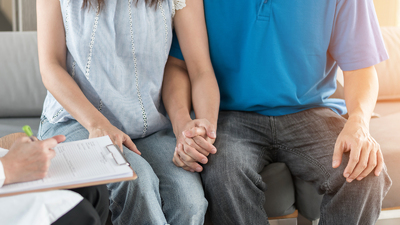Approximately one out of 10 Americans over the age of 12, roughly 23.5 million people, are addicted to alcohol and drugs, according to the Partnership for Drug-Free Kids. Meanwhile, data from the Centers for Disease Control (CDC) indicates that one out of every four women and one out of every nine men are victims of intimate partner violence (IPV). While these statistics are alarming on their own, the link between them is especially concerning.
Here’s a closer look at the connection between addiction and domestic violence, along with how it’s possible to break this destructive cycle.

Understanding the link between IPV and substance abuse can stop it.
About Intimate Partner Violence
According to the Futures Without Violence Association, IPV is defined as “a pattern of assaultive and coercive behaviors that may include inflicted physical injury, psychological abuse, sexual assault, progressive social isolation, stalking, deprivation, intimidation and threats. These behaviors are perpetrated by someone who is, was, or wishes to be involved in an intimate or dating relationship with an adult or adolescent, and one aimed at establishing control by one partner over the other.”
But what, exactly, is the link between IPV and addiction? The American Society of Addiction Medicine (ASAM) suggests that substance abuse co-occurs in as many as 60 percent of IPV cases.
Understanding the Link
More specifically, ASAM reveals that spousal abuse has been determined to be a predictor of developing substance abuse problems and addiction. Not only that, but female domestic abuse victims are often coerced into using drugs and alcohol by their partners. Continues ASAM: “Substance abuse and high-risk alcohol use/abuse are more prevalent among women who experience IPV compared to a cohort with no IPV experience.”
It gets even worse, though. Research also indicates that physical violence is a staggering 11 times more likely for batterers and victims alike on days of heavy substance use. While there’s some discussion as to whether substance abuse causes violence or whether it’s used to justify it, the takeaway is the same. A strong – and dangerous – relationship exists.
The Treatment Imperative
We’ve established that there exists a correlation between addiction and domestic violence. We also know that treatment for the individual issues can facilitate recovery. However, as with other co-occurring conditions, the imperative to treat both simultaneously is often overlooked, with poorer outcomes as the unhappy result.
Many experts call for a different approach. Proposes research published in the Psychiatric Times: “Many batterer programs do not address substance use, are highly confrontational in nature and reach far fewer individuals than substance abuse treatment programs. Hence, it is likely that focusing on IPV with men who batter within the context of a substance abuse treatment facility may reach a comparatively larger number of individuals with IPV.”

Behavioral couples therapy can be an invaluable part of treating the co-occurring issue of domestic abuse addiction.
Even more promising? Studies suggesting that when substance use declines with treatment, so does domestic violence. In particular, research points to the potential of evidence-based therapies, such as behavioral couples therapy, cognitive-behavioral therapy, and integrated substance abuse-domestic violence treatment.
The conclusion, according to the Psychiatric Times is that “standard batterer intervention programs are not effective at decreasing IPV or substance use, and, therefore, other referrals to substance abuse or mental health treatment are needed.”
In treating the substance abuse/addiction, St. Louis drug rehab program Harris House offers the comprehensive and targeted treatment batterers and their victims need to break the cycle and move forward with their lives in the most positive ways. Call us today to learn about admissions.







